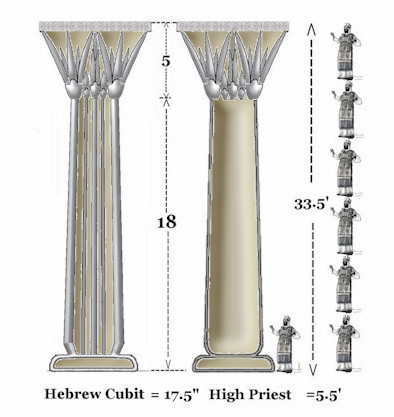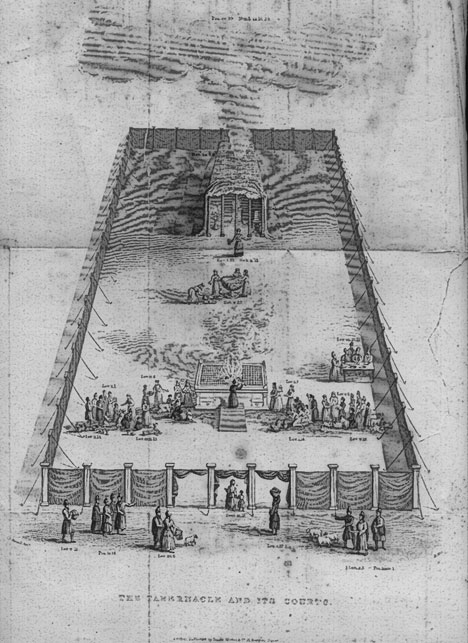Mar
21
2011

Here’s a great post from Doug Hayes’ blog, republished here with his permission.
When Rich Bledsoe was with us at Family Camp he mentioned a paper he wrote: Sex and the City, [PDF] which we have now placed on the RCC website. It is an interesting piece of biblical social commentary worth thinking about.
Bledsoe contrasts the great ancient cities with the great city of God, the New Jerusalem and their respective sexual commitments and activities. At the base of his comments is the presupposition that it is important for us to think about cities because “the entire planet is ‘metropolizing.’ Everywhere, human beings are leaving their rural roots and are moving into the city.”
Continue reading
Comments Off | tags: Babylon, Culture, Doug Hayes, Eschatology, Marriage, New Jerusalem, Postmillennialism, Revelation, Rich Bledsoe | posted in Biblical Theology, Quotes
Jan
22
2011

Joel McDurmon has an excellent rundown on the first century context of Jesus’ parables:
…The separation of wheat and tares, then, pertained to the destruction of Jerusalem and the separation of God’s true fruit-bearing people from the weeds, the unbelieving Jews of that time. Ironically, this interpretation gets to the heart of the picture in the parable.
Continue reading
Comments Off | tags: AD70, Joel McDurmon | posted in Bible Matrix, Quotes, The Last Days
Dec
16
2010

“Then Jesus told them: You can be sure that tax collectors and prostitutes will get into the kingdom of God before you ever will! When John the Baptist showed you how to do right, you would not believe him. But these evil people did believe. And even when you saw what they did, you still would not change your minds and believe.” (Matthew 21:31-32)
James Jordan teaches you to observe the universals in Scripture. I believe one of the most important is the Totus Christus pattern, head and body, and its counterfeits and distortions.
As mentioned around here a couple times (sorry, a couple of times. I’ve been reading too many Americans), the curse upon Adam concerned his head, and his responsibility to provide for and protect the body. The curse upon Eve concerned her body, her role in producing offspring. Both curses were a limited form of barrenness.
But what of the relationship between head and body? James Jordan writes:
Continue reading
2 comments | tags: Abortion, Altar of the Abyss, Covenant curse, Covenant Theology, Doug Wilson, Genesis, James Jordan, Marriage | posted in Biblical Theology, Quotes, The Last Days, Totus Christus
Dec
14
2010
or God is a Foodie

The Mosaic dietary laws were temporary. Just as a Nazirite made a temporary vow for the purpose of sanctification for holy war, so Israel’s purpose as a nation of holy warriors included certain abstinences prescribed by God. Once the war was over, the prohibitions were removed. “Bridal food” (the Feast of Tabernacles) was back on the menu in the first century.
The Nazirite vow was a symbolic form of death and resurrection, of the bridegroom going into the grave (short hair), slaying the serpents, and emerging from the chamber with His bride (long hair), whom He then presented to the Father. [1] The prohibition on the Tree of Knowledge was a temporary one. It began Adam’s holy war, but he broke the vow, failed to rescue the bride and was expelled from the Lord’s table. [2]
Continue reading
11 comments | tags: Communion, Fasting, Food laws, Genesis, Jacob, James Jordan, Leviticus, Nazirite, Robert Farrar Capon, Typology | posted in Biblical Theology, Christian Life, Quotes
Dec
13
2010

“Deny that God speaks to any area of life, and you have denied God’s jurisdiction in that area of life.”
A very intelligent Christian recently posed the question, “What will be the most pressing intellectual challenge facing the church over the next 50 years?” What if the biggest challenge facing the church is not intellectual at all, but ethical. [1]
Continue reading
1 comment | tags: Barth, Brueggemann, C. S. Lewis, Gary North, Genesis, Joseph, Postmillennialism, Socialism, Toby Sumpter, Van Til | posted in Ethics, Quotes
Dec
6
2010

Peter Leithart writes:
“Why so much attention to the pillars of Solomon’s temple in 2 Kings 25? It is likely that these were the last major items left. Ahaz had already dismantled the bronze sea and the water chariots. King after king plundered the temple for bribe money. When Nebuchadnezzar came, not much was left. Perhaps even the ark was among the ‘gold’ items removed earlier.” [1]
Continue reading
Comments Off | tags: Creation Week, Daniel, Kings, Mordecai, Nebuchadnezzar, Peter Leithart, Solomon, Tabernacle, Temple | posted in Bible Matrix, Biblical Theology, Quotes, The Restoration Era
Nov
15
2010

“Screw the truth into men’s minds.” – Richard Baxter
Doug Wilson, (in an interview a while back concerning Collision, I think), spoke about “copiousness.” It is the Christian’s practice of picking up striking thoughts and illustrations from reading, and from life, for future use. He advocates keeping a Commonplace book to jot things down.
“Keep a commonplace book. Write down any notable phrases that occur to you, or that you have come across. If it is one that you have found in another writer, and it is striking, then quote it, as the fellow said, or modify it to make it yours. If Chandler said that a guy had a cleft chin you could hide a marble in, that should come in useful sometime. If Wodehouse said somebody had an accent you could turn handsprings on, then he might have been talking about Jennifer Nettles of Sugarland. Tinker with stuff. Get your fingerprints on it.” [1]
He describes an incident that makes this book (or blog or mental practice) sound more like keeping caches of ammunition near at hand. Continue reading
2 comments | tags: Chesterton, Doug Wilson, Ecclesiastes, Hermeneutics, Revelation, Spurgeon, Tabernacles | posted in Apologetics, Biblical Theology, Christian Life, Quotes
Nov
12
2010

Joshua Marchlewski has outlined the chiasm in Leviticus 24:13-23 (reposted here with his permission): Continue reading
1 comment | tags: Leviticus, Literary Structure, Moses | posted in Bible Matrix, Biblical Theology, Quotes
Nov
9
2010

The Wrong Kind of Blood, the Wrong Kind of Spirit
These six things the LORD hates, Yes, seven are an abomination to Him:
…..A proud look,
……….A lying tongue,
……………Hands that shed innocent blood,
………………..A heart that devises wicked plans,
……………Feet that are swift in running to evil,
……….A false witness who speaks lies,
…..And one who sows discord among brethren. (Proverbs 6: 6-19)
Although Revelation describes two women, there was really only one. Solomon dealt with two prostitutes who lived in the same house. What Revelation does is cut the prostitute in two. At Atonement, Rahab was separated from Jericho; Mary Magdalene was delivered of her seven demons. Peter Leithart writes:
“Mary Magdalene functions in the same way in John’s gospel. She had seven demons (like Israel in Jesus’ parable!), but by the end of the book has become a new Eve, recognising Jesus as the New Adam in the garden of the resurrection. Since she is new Eve, it is entirely appropriate that Jesus call her ‘Woman’.” [1]
Continue reading
1 comment | tags: Covenant Theology, Feasts, James Jordan, Numbers 5, Peter Leithart, Revelation, Solomon, Systematic typology, Warren Gage | posted in Bible Matrix, Biblical Theology, Quotes, The Last Days
Nov
8
2010

From James Jordan, The Framework Hypothesis: A Gnostic Heresy, Biblical Horizons No. 107
…I submit that the entire Christian faith stands or falls on how Genesis 1 is interpreted, and that the guardians of the Church must take an unequivocal stance on this matter.
The issue is hermeneutics and religion. Since these “contradictions” in Genesis 1 serve to indicate that this passage is not to be taken historically, the only alternative is to take the passage as giving some kind of archetype for creation by God. It is a foundational “myth,” expressing in “human language” matters that cannot be expressed any other way. It is a true myth in that the ideas taught in Genesis 1 are true.
And this is where the shift from true religion to gnosticism comes in. History has been replaced by ideas. Continue reading
3 comments | tags: Add new tag, Exodus, Genesis, Gnosticism, Hermeneutics, James Jordan | posted in Apologetics, Creation, Quotes



































